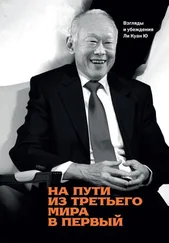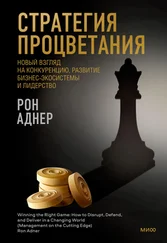Neck C., Manz Ch. Mastering Self-Leadership: Empowering Yourself for Personal Excellence (Upper Saddle River, NJ: Prentice Hall, 2007).
Blanchard K. Self-Leadership and the One-Minute Manager (New York: HarperCollins, 2006).
Deci E. L., Flaste R. Why We Do What We Do (New York: Penguin Books, 1996), 2.
Nicholson N. How Hardwired Is Human Behavior? // Harvard Business Review, July – August (1998): 135, 98406. См. его же: Executive Instinct (New York: Crown Business, 2000).
См. например: Ridley M. Nature via Nurture: Genes, Experience, and What Makes Us Human (New York: HarperCollins, 2003).
Ratey J. J., Johnson C. Shadow Syndromes: The Mild Forms of Major Mental Disorders That Sabotage Us (New York: Bantam, 1998).
Dawkins R. The Selfish Gene (Oxford: Oxford University Press, 1976).
Brodie R. Viruses of the Mind (Seattle, WA: Integral Press, 1996).
Blackmore S. The Power of Memes // Scientific American, 283, no. 4 (October 2000): 52–61.
Diamond J. Guns, Germs, and Steel (New York: Norton, 1999).
Csikszentmihalyi M. The Evolving Self (New York: Harper Perennial, 1993).
Подробнее о теории объектных отношений в умственном развитии человека см.: Hamilton N. G. The Self and the Ego in Psychotherapy (Northvale, NJ: Jason Aronson, Inc., 1996); и Scharff J. S., Scharff D. E. The Primer of Object Relations Theory (Northvale, NJ: Jason Aronson, Inc., 1995).
Klein M. Love, Hate and Reparation (New York: Norton, 1964).
Miller A. The Drama of the Gifted Child (New York: Basic Books, 1997, 1979).
Sheehy G. Necessary Passages (New York: Bantam, 1984).
Csikszentmihalyi M. The Evolving Self: A Psychology for the Third Millennium (New York: HarperCollins, 1993).
Massey M. The People Puzzle (Reston, VA: Reston Publishing, 1979).
Glasser W. Choice Theory (New York: HarperCollins, 1998).
Levinson H. The Great Jackass Fallacy (Boston, MA: Harvard Business School Press, 1973).
Nadler D. A., Lawler III E. E. Motivation: A Diagnostic Approach // Hackman J. R., Lawler E. E. (eds.), Perspectives on Behavior in Organizations (New York: McGraw-Hill, 1977).
Skinner B.F. Science and Human Behavior (New York: The Free Press, 1953).
Taylor F. The Principles of Scientific Management, new ed. (New York: Dover, 1998).
Glasser W. Choice Theory (New York: HarperCollins, 1998).
Ellis A., Harper R. A. A New Guide to Rational Living (Hollywood, CA: Melvin Powers Wilshire Book Company, 1961, 1975, 1997).
См., например: Berne E. Games People Play (New York: Ballantine, 1964).
Fairholm G.W. Values Leadership (New York: Praeger, 1991).
Gladwell M. Blink: The Power of Thinking without Thinking (New York: Little, Brown and Company, 2005).
Berger P., Luckman T. The Social Construction of Reality (New York: Anchor, 1967).
Livingston S. Pygmalion in Management // Harvard Business Review , September 01, 2002, 1768.
Здесь очень полезен навык «активного», или «рефлексивного слушания», который позволяет получить более полное представление о ЦУПО человека. См., например: "Active Listening," UVA-OB-341 (техническая записка Darden Business Publishing).
Deci E. Why People Do What They Do (New York: Penguin, 1995). См. также: Kohn F. Punished by Rewards: The Trouble with Gold Stars, Incentive Plans, A's, Praise, and Other Bribes (New York: Mariner, 1999).
Hayakawa S. Symbol, Status and Personality (New York: Harvest/HBJ, 1966), 37.
См., например: Mintzberg H. Managers, Not MBAs: A Hard Look at the Soft Practice of Managing and Management Development (New York: Berrett-Kohler, 2004).
Подробнее см.: Goleman D. Emotional Intelligence (New York: Bantam, 1995). Многие идеи, представленные в главе, позаимствованы из этой прекрасной книги.
Например, Гарвардская бизнес-школа перестала учитывать GMAT абитуриентов, заключив, что результаты теста почти не соотносятся с успехами выпускника. Журнал Time в марте 2001 года сделал темой номера дискуссию о целесообразности тестирования SAT, давно применяемого в американской системе образования.
Gardner H. Frames of Mind (New York: Basic Books, 1993).
Sternberg R. J. Successful Intelligence: How Practical and Creative Intelligence Determine Success in Life (New York: Plume, 1997).
Позиция Гоулмана во многом близка рационально-эмотивной поведенческой терапии Альберта Эллиса, которая учит человека разубеждать свое «я» во вредных мыслях и выводах. См., например: Ellis A. A New Guide to Rational Living (Los Angeles, CA: Wilshire Book Company, 1975); Kranzler G. You Can Change How You Feel (Eugene, OR: University of Oregon, 1974).
Техники расслабления являются центральным элементом многих духовных и медицинских практик. См., например, известную методику доктора Дина Орниша для снижения риска сердечных заболеваний: Dr. Dean. Ornish's Program for Reversing Heart Disease (New York: Ballantine Books, 1990).
Со времени первого издания этого учебника у Дэниела Гоулмана вышла книга, в которой понятия EQ и SQ разделены: Social Intelligence (New York: Bantam, 2007).
Обратите внимание, что под SQ мы здесь понимаем «социальный интеллект». Есть одна книга, где это сокращение расшифровывается как «духовный интеллект»: Zohar D., Marshall I. SQ, Spiritual Intelligence, the Ultimate Intelligence (New York: Bloomsbury, 2000).
См.: Zeeman E. C. Catastrophe Theory // Scientific American , 234 (April 1976): 65–83.
Читать дальше
Конец ознакомительного отрывка
Купить книгу












